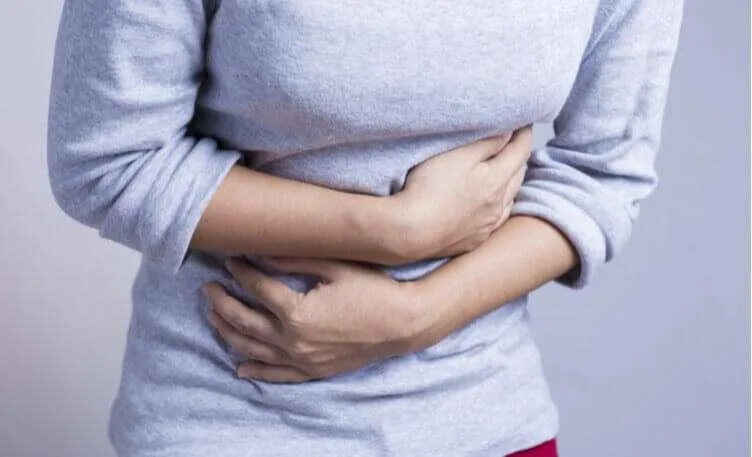The Blog

Unraveling the Link - Gut Health and Hormone Imbalance in Women
Introduction
Have you been feeling off lately—perhaps dealing with bloating, fatigue, or unexplained weight fluctuations? You might be surprised to learn that your gut health and hormone levels could be to blame. Gut health and hormone imbalance are closely interconnected, and understanding their relationship is crucial for maintaining your overall well-being. This post explores how issues in your gut might be affecting your hormones, especially if you're a woman navigating hormonal changes.
Understanding Gut Health
What is the Gut Microbiome?
Your gut microbiome consists of trillions of bacteria, fungi, and other microorganisms living in your digestive tract. These tiny residents play a huge role in your health, from aiding digestion to boosting your immune system. When your gut is healthy, the good bacteria help keep the bad ones in check.
Symptoms of Poor Gut Health
Unfortunately, modern lifestyles can easily disrupt your gut microbiome, leading to various symptoms, including:
Bloating
Gas
Irregular bowel movements
Stomach pain
Food intolerances
Skin problems
Recognizing Hormone Imbalance
Major Hormones in Women's Bodies
Several hormones play pivotal roles in women's health, including:
Estrogen: Regulates the menstrual cycle and reproductive system.
Progesterone: Prepares the body for pregnancy.
Cortisol: Manages stress and affects metabolism.
Serotonin: Influences mood and emotional well-being.
Common Signs of Hormone Imbalances
When these hormones are out of balance, you might experience a range of symptoms, such as:
Fatigue
Weight gain
Mood swings
Irregular periods
Anxiety or depression
The Gut-Hormone Connection
How Gut Health Influences Hormone Balance
Your gut and hormones are in constant communication. A healthy gut can help regulate your body's hormones, while an imbalanced gut can exacerbate hormonal issues. For instance, cortisol levels can rise when your gut is inflamed, making it harder for your body to manage stress.
Examples of Interconnectedness
Cortisol: Excessive gut inflammation can lead to increased cortisol levels, commonly known as the stress hormone.
Serotonin: About 90% of serotonin, which affects mood, is produced in the gut. Imbalanced gut flora can lead to reduced serotonin, contributing to mood disorders.
Signs of Gut and Hormone Imbalances in Women
Comprehensive List of Symptoms
Here are some symptoms that could indicate both gut and hormone imbalances:
Chronic fatigue
Persistent bloating
Unexplained weight changes
Mood swings and irritability
Irregular menstrual cycles
Skin issues such as acne or eczema
Digestive problems like constipation or diarrhea
Real-Life Examples and Case Studies
Dr. Carrie Jones, a hormone expert, states, "Many of my female patients suffer from both gut and hormone issues. Addressing one often leads to improvements in the other." Dr. LJ Johnson adds, "I've seen cases where gut healing significantly improved hormonal issues like PCOS or adrenal fatigue."
Managing and Rebalancing Gut Health and Hormones
Dietary and Lifestyle Changes
Balanced Diet: Incorporate fiber-rich foods, lean proteins, and healthy fats.
Probiotics: Include yogurt, kefir, or supplements to boost good bacteria.
Hydration: Drink plenty of water to aid digestion.
Exercise: Regular physical activity helps regulate hormones and improve gut health.
Medical Interventions
Probiotics: Supplements can help restore gut flora balance.
Hormone Therapy: Under a doctor's supervision, hormone therapy can address specific imbalances.
Stress Management: Techniques like yoga and meditation can lower cortisol levels.
Conclusion
Recognizing and addressing gut and hormone imbalances is essential for women's health. If you're experiencing symptoms, it's crucial to consult a healthcare provider for proper diagnosis and treatment. Don't hesitate to share this post with others who might benefit from this information.
References and Further Reading
For those interested in learning more, here are some credible sources and scientific studies:
Gut Microbiome and Its Role in Health
Impact of Gut Health on Hormone Balance
Books, websites, and support groups for additional resources.
The Importance of Professional Guidance
Navigating the complexities of gut health and hormonal imbalances can be challenging without proper guidance. Professional healthcare providers possess the expertise to diagnose underlying issues accurately and recommend tailored treatment plans. Self-diagnosis and over-the-counter remedies may provide temporary relief, but they often fail to address the root cause of health problems. Hence, seeking professional guidance ensures that interventions are both safe and effective, minimizing the risk of adverse effects. Consulting with a qualified healthcare provider can also offer personalized strategies that encompass dietary changes, supplements, and lifestyle modifications, ultimately supporting long-term health and well-being. Don't hesitate to reach out for help if you're struggling with gut health or hormonal imbalances. Remember, taking care of your body is essential for overall health and happiness. Let's continue spreading awareness about the importance of women's health!
Conclusion
In conclusion, maintaining a healthy gut and hormonal balance is crucial for optimal overall health in women. The two are closely interconnected, and imbalances can lead to a variety of symptoms and conditions. It's important to prioritize self-care practices like maintaining a nutritious diet, managing stress levels, and seeking professional guidance when needed. By understanding the relationship between gut health and hormones
, you can take proactive steps towards better health.
Call to Action
Ready to take control of your gut health and hormonal balance? Schedule a call with Dr. Lj today! Dr. Lj is an expert in women's health, offering personalized consultations to help you understand and address your unique health concerns. Don't wait to start your journey towards optimal wellness. Book your appointment now and take the first step towards a healthier, happier you!
Copyright 2024 © - All Rights Reserved

